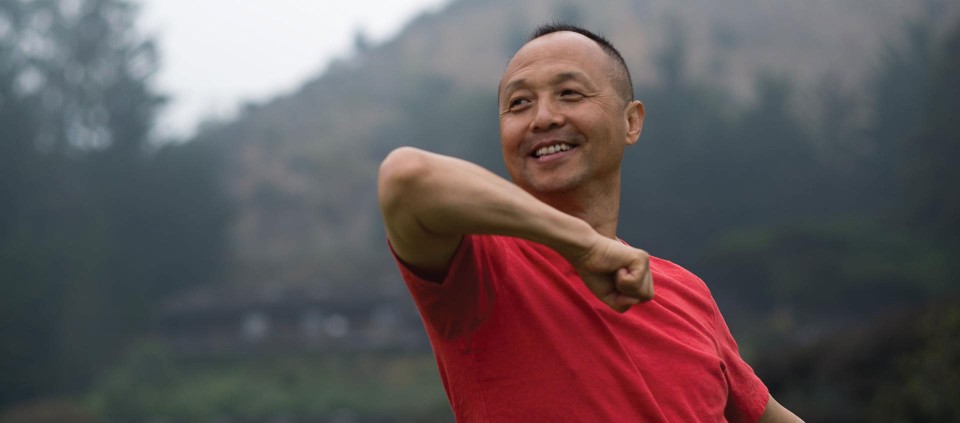How Taijiquan Saved My Life

The art of Taijiquan is one of the greatest gifts that China has to share with the world. I feel strongly about this, and about my commitment to share the art with others, because I literally owe my life to the practice of Taijiquan. At the time I was born, precious little food was available in China. Many pregnant mothers did not have enough food for themselves, let alone enough to support healthy pregnancies, and so in my hometown many children my age had problems resulting from poor prenatal nutrition. In my case, I was born with a congenital heart defect, and I was especially weak as a young boy. The doctors warned my parents that I might not live much longer and recommended that I travel to Shanghai for an operation. Such drastic measures, however, were entirely beyond the resources of my family.
For a time it seemed there was no hope that I would ever be healthy. When I was 12, however, a visiting uncle suggested, “You live so close to the Chen family village, why not try Taiji?” All modern styles of Taiji trace their lineage to the Chen Village in Henan Province, only miles from my home. With just this passing comment, my life took a new direction. I began practicing with Wu Xiubao, a government official in my hometown of Jiaozuo and a well-respected teacher of Taiji who was himself a student of Chen Zhaopei and Chen Zhaokui, the two preeminent representatives of the Chen family at that time. I can picture the day my mother took me as a small boy to meet Wu Xiubao to ask him to take me as a student—I had to wear my best clothes and be on my very best behavior.
With my father’s loving but not-so-subtle encouragement—every morning he would wake me at 5:30, saying, “Get up! You have to go to the park to practice Taiji or you will die!”—I persevered through the beginning stages of practice and began to learn the art. Although the doctors had previously forbidden any strenuous activity, I soon found that I was not only able to play sports, I could wrestle with and hold my own against older and stronger boys. My health and strength had improved tremendously, and even at this early age I began to develop a profound appreciation for the art, as well as a desire to pursue higher levels of skill and understanding. By the age of 16, I was easily able to pass the physical examination necessary for entrance into college, without which students were not admitted and therefore had little hope of improving their living condition.
And so, even if I had not died from the heart defect, without Taijiquan I certainly would never have been able to attend college and likely would never have left my hometown. Attending college in Shanghai and Beijing, working as an engineer and lawyer, and later traveling to America to pursue my doctorate in kinesiology and to teach Taiji have all been made possible by the curative effects of Taiji practice. Beyond the health benefits, the experience and knowledge I garnered from Taiji practice have been a continuing source of inspiration and guidance in my daily life. Because the influence of Taiji on my life has been so profound, and because the benefits of practicing Taiji are real and available to anyone ready and willing to follow the path of this holistic art, I have dedicated myself to promoting and sharing this treasure of Chinese culture.
Excerpted with permission from Taijiquan: The Art of Nurturing, the Science of Power, © 2005, by Yang Yang, PhD, with Scott A. Grubisich.
Yang Yang, PhD, is the founder of the Center for Taiji and Qigong Studies and a researcher and tai chi/qigong clinician, formerly at Memorial Sloan-Kettering Cancer Center in New York City.
Full Bio and Programs